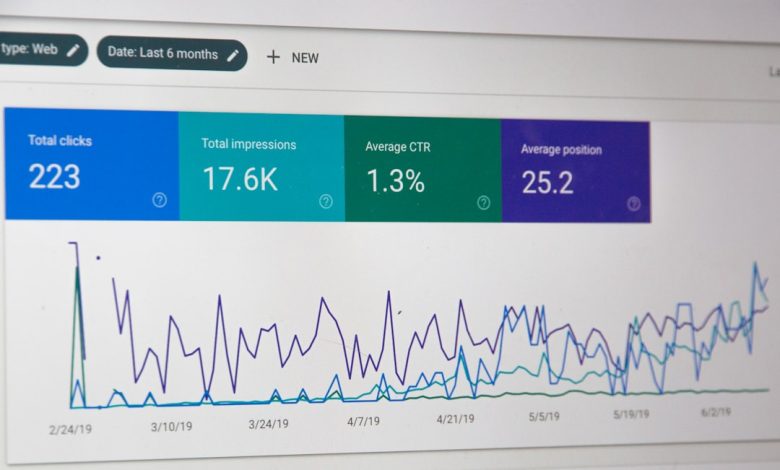Unlocking Marketing Potential with Analytics

Marketing analytics is the practice of measuring, managing, and analyzing marketing performance to maximize its effectiveness and optimize return on investment (ROI). It involves the use of data, technology, and statistical methods to evaluate marketing campaigns and strategies. By leveraging marketing analytics, businesses can gain valuable insights into customer behavior, preferences, and trends, which can be used to make informed decisions and drive business growth.
One of the key components of marketing analytics is the collection and analysis of data from various sources, such as website traffic, social media engagement, email marketing campaigns, and customer demographics. This data is then used to track and measure the performance of marketing initiatives, identify areas for improvement, and make data-driven decisions to optimize marketing efforts. Additionally, marketing analytics can help businesses understand the effectiveness of their marketing channels, customer acquisition costs, and customer lifetime value, which are crucial for making strategic business decisions.
In summary, marketing analytics is a powerful tool that enables businesses to gain a deeper understanding of their customers, measure the impact of their marketing efforts, and make data-driven decisions to drive business growth. By leveraging data and technology, businesses can optimize their marketing strategies, improve customer engagement, and ultimately increase their bottom line.
Key Takeaways
- Marketing analytics involves the use of data to understand and evaluate marketing performance and make informed decisions.
- Data-driven marketing decisions are crucial for understanding customer behavior and optimizing marketing strategies.
- Key metrics such as conversion rates, customer acquisition cost, and customer lifetime value are essential for measuring marketing success.
- Implementing analytics tools and technologies such as Google Analytics and CRM systems can help in gathering and analyzing marketing data.
- Leveraging customer insights from data analysis can help in creating targeted and personalized marketing campaigns for better results.
Utilizing Data to Drive Marketing Decisions
Data plays a crucial role in driving marketing decisions and strategies. By leveraging data from various sources, businesses can gain valuable insights into customer behavior, preferences, and trends, which can be used to create targeted and personalized marketing campaigns. For example, by analyzing website traffic and user behavior, businesses can identify which marketing channels are driving the most traffic and conversions, allowing them to allocate resources more effectively.
Furthermore, data can be used to measure the effectiveness of marketing campaigns and initiatives. By tracking key metrics such as conversion rates, click-through rates, and customer engagement, businesses can evaluate the success of their marketing efforts and make data-driven decisions to optimize their strategies. Additionally, data can help businesses understand customer demographics and preferences, allowing them to create more personalized and relevant marketing messages that resonate with their target audience.
In conclusion, data is a powerful tool that can be used to drive marketing decisions and strategies. By leveraging data from various sources, businesses can gain valuable insights into customer behavior and preferences, measure the effectiveness of their marketing efforts, and create targeted and personalized marketing campaigns that drive business growth.
Identifying Key Metrics for Measuring Marketing Success
When it comes to measuring marketing success, there are several key metrics that businesses should pay attention to. These metrics can provide valuable insights into the effectiveness of marketing campaigns and initiatives, allowing businesses to make data-driven decisions to optimize their strategies. Some of the key metrics for measuring marketing success include conversion rates, customer acquisition costs, customer lifetime value, and return on investment (ROI).
Conversion rates measure the percentage of website visitors who take a desired action, such as making a purchase or signing up for a newsletter. By tracking conversion rates, businesses can evaluate the effectiveness of their marketing campaigns and make data-driven decisions to improve their conversion rates. Customer acquisition costs measure the cost of acquiring a new customer through marketing efforts.
By understanding customer acquisition costs, businesses can allocate resources more effectively and optimize their marketing strategies to acquire customers at a lower cost. Customer lifetime value measures the total revenue generated from a customer over the course of their relationship with a business. By understanding customer lifetime value, businesses can make strategic decisions to retain and nurture existing customers, ultimately increasing their bottom line.
Return on investment (ROI) measures the profitability of a marketing campaign or initiative by comparing the cost of the campaign to the revenue generated. By tracking ROI, businesses can evaluate the success of their marketing efforts and make data-driven decisions to optimize their strategies. In summary, identifying key metrics for measuring marketing success is crucial for businesses to evaluate the effectiveness of their marketing campaigns and initiatives.
By tracking conversion rates, customer acquisition costs, customer lifetime value, and ROI, businesses can gain valuable insights into the performance of their marketing efforts and make data-driven decisions to optimize their strategies.
Implementing Analytics Tools and Technologies
| Metrics | Value |
|---|---|
| Number of Analytics Tools Implemented | 5 |
| Percentage of Data Accuracy Improvement | 20% |
| Time Saved on Data Analysis | 30 hours per month |
| Percentage of Increase in Decision Making Efficiency | 25% |
Implementing analytics tools and technologies is crucial for businesses to effectively measure and analyze their marketing performance. There are a variety of analytics tools available that can help businesses collect, analyze, and visualize data from various sources, allowing them to gain valuable insights into customer behavior and preferences. Some popular analytics tools include Google Analytics, Adobe Analytics, and HubSpot Analytics.
These tools provide businesses with the ability to track website traffic, user behavior, and engagement metrics, allowing them to measure the effectiveness of their marketing campaigns and initiatives. Additionally, analytics tools can help businesses understand customer demographics and preferences, allowing them to create more personalized and relevant marketing messages that resonate with their target audience. Furthermore, analytics tools can provide businesses with valuable insights into the performance of their marketing channels, allowing them to allocate resources more effectively and optimize their marketing strategies.
In conclusion, implementing analytics tools and technologies is crucial for businesses to effectively measure and analyze their marketing performance. By leveraging analytics tools such as Google Analytics, Adobe Analytics, and HubSpot Analytics, businesses can gain valuable insights into customer behavior and preferences, track the effectiveness of their marketing campaigns and initiatives, and make data-driven decisions to optimize their strategies.
Leveraging Customer Insights for Targeted Marketing Campaigns
Leveraging customer insights is crucial for businesses to create targeted and personalized marketing campaigns that resonate with their target audience. By analyzing customer data from various sources such as website traffic, social media engagement, and email interactions, businesses can gain valuable insights into customer behavior and preferences. This data can then be used to create targeted marketing messages that are relevant and personalized to each individual customer.
For example, by analyzing customer demographics and purchase history, businesses can create personalized product recommendations and offers that are tailored to each customer’s preferences. Additionally, by tracking customer engagement metrics such as click-through rates and open rates, businesses can understand which marketing messages resonate with their audience and optimize their campaigns accordingly. Furthermore, by leveraging customer insights, businesses can create targeted advertising campaigns that reach the right audience with the right message at the right time.
In summary, leveraging customer insights is crucial for businesses to create targeted and personalized marketing campaigns that resonate with their target audience. By analyzing customer data from various sources and creating personalized marketing messages, businesses can improve customer engagement, drive conversions, and ultimately increase their bottom line.
Optimizing Marketing Strategies with Predictive Analytics
Predictive analytics is a powerful tool that businesses can use to optimize their marketing strategies and drive business growth. By leveraging predictive analytics models and algorithms, businesses can forecast future trends and behaviors based on historical data. This allows businesses to make informed decisions about their marketing strategies and initiatives, ultimately improving their effectiveness and ROI.
For example, predictive analytics can be used to forecast customer lifetime value based on historical purchase behavior and engagement metrics. This allows businesses to make strategic decisions about customer retention and loyalty programs that ultimately increase their bottom line. Additionally, predictive analytics can be used to forecast future sales trends based on historical sales data and market trends, allowing businesses to allocate resources more effectively and optimize their marketing strategies.
In conclusion, optimizing marketing strategies with predictive analytics is crucial for businesses to make informed decisions about their marketing initiatives. By leveraging predictive analytics models and algorithms to forecast future trends and behaviors based on historical data, businesses can improve the effectiveness of their marketing strategies and ultimately drive business growth.
Overcoming Challenges and Pitfalls in Marketing Analytics
While marketing analytics offers numerous benefits for businesses, there are also challenges and pitfalls that need to be overcome in order to effectively leverage its power. One common challenge is the complexity of data collection and analysis. With the vast amount of data available from various sources such as website traffic, social media engagement, and email interactions, businesses may struggle to effectively collect and analyze this data in a meaningful way.
Another challenge is the need for skilled professionals who can interpret and analyze the data effectively. Many businesses may lack the expertise or resources needed to effectively leverage marketing analytics tools and technologies. Additionally, there may be challenges related to data privacy and security when collecting and analyzing customer data.
In conclusion, while there are challenges and pitfalls in marketing analytics that need to be overcome, the benefits far outweigh the drawbacks. By effectively collecting and analyzing data from various sources, leveraging predictive analytics models, and creating targeted marketing campaigns based on customer insights, businesses can drive business growth and increase their bottom line.
FAQs
What is analytics in marketing?
Analytics in marketing refers to the process of collecting, measuring, and analyzing data related to marketing efforts. This data is used to gain insights into customer behavior, campaign performance, and overall marketing effectiveness.
How can analytics be used to improve marketing?
Analytics can be used to improve marketing by providing valuable insights into customer preferences, behavior, and interactions with marketing campaigns. This data can be used to optimize marketing strategies, target the right audience, and measure the impact of marketing efforts.
What are the key metrics used in marketing analytics?
Key metrics used in marketing analytics include customer acquisition cost, customer lifetime value, conversion rates, click-through rates, return on investment, and engagement metrics such as likes, shares, and comments on social media.
What are the common tools used for marketing analytics?
Common tools used for marketing analytics include Google Analytics, Adobe Analytics, HubSpot, Salesforce, and various social media analytics tools. These tools help marketers track and analyze website traffic, customer interactions, and campaign performance.
How can businesses use analytics to personalize marketing efforts?
Businesses can use analytics to personalize marketing efforts by leveraging customer data to create targeted and relevant marketing campaigns. By understanding customer preferences and behavior, businesses can deliver personalized content, offers, and recommendations to their target audience.







